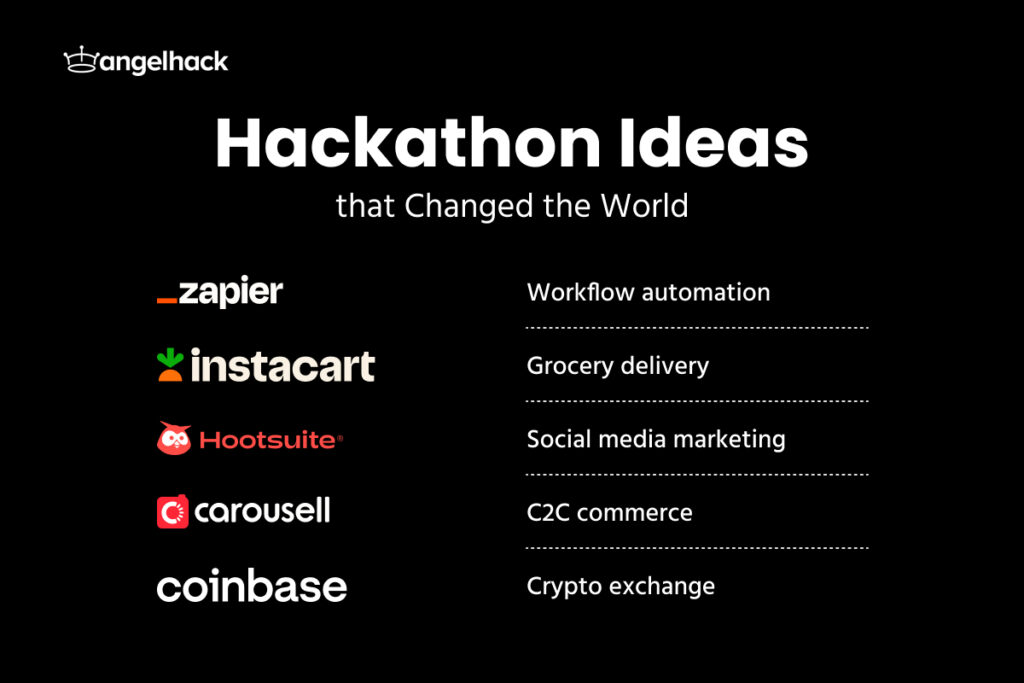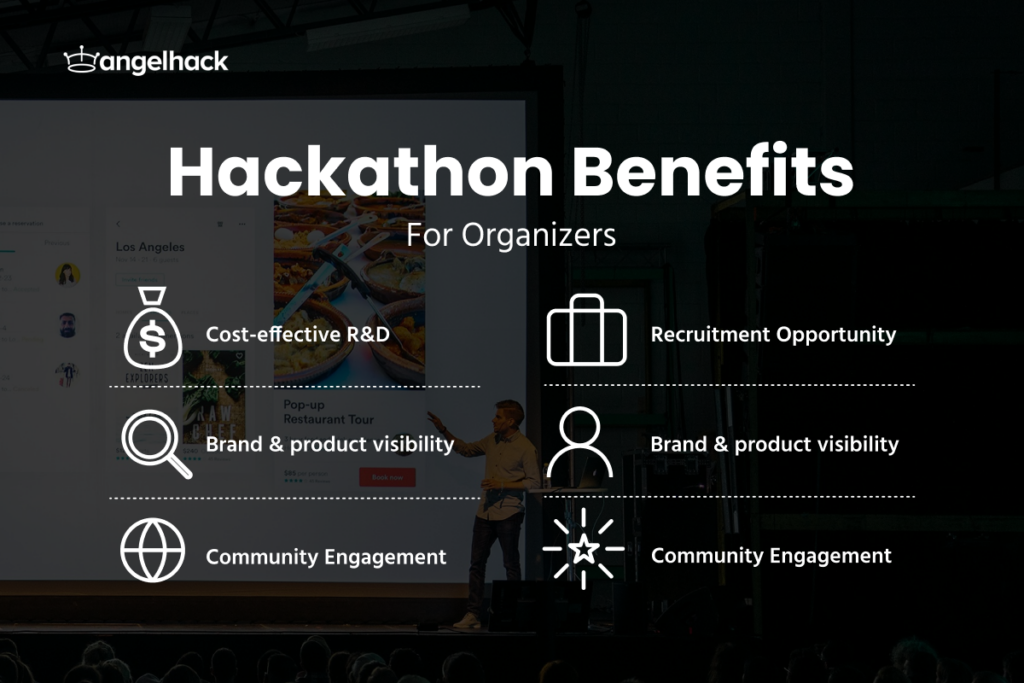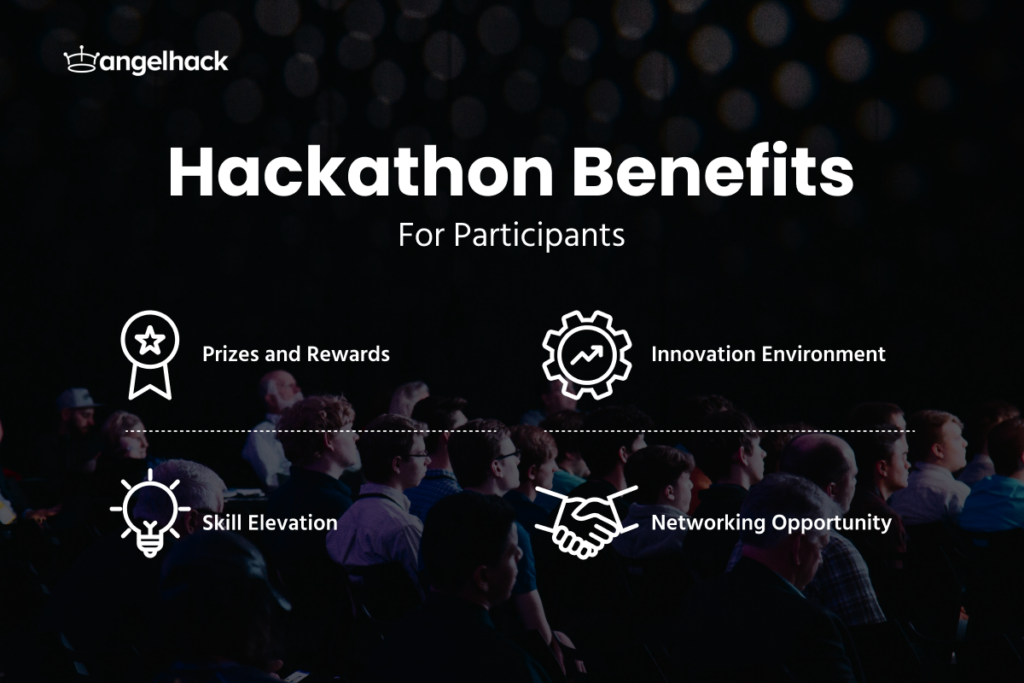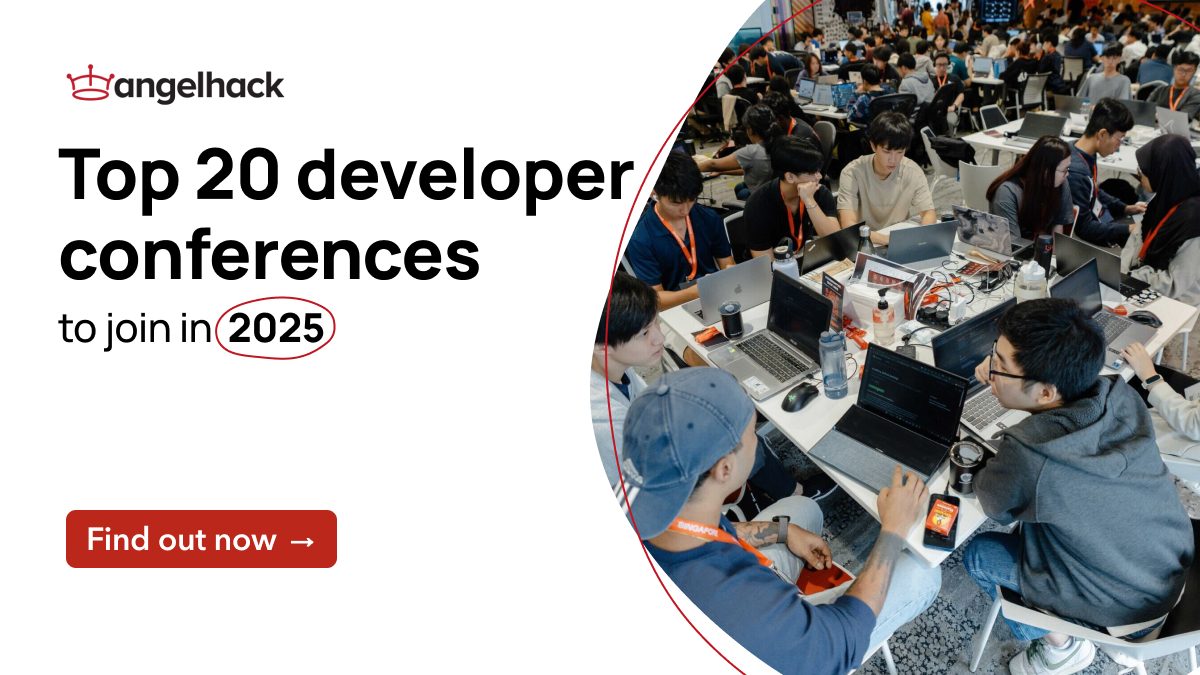In the vibrant and dynamic world of technology and innovation, no other event stands out as much as a ‘hackathon’. It’s proven to be a cauldron of creativity and collaboration and created some of the best technology the world has ever seen. In a single glance, this word may mean something different to you depending on who you are. Based on our experience running over 500 global hackathons, we’re going to list out exactly what is hackathon.
For those familiar, this word is often tossed around at work, in tech circles, during fundraising and often those scratching their brains aiming to find results using hackathon as an activity. AngelHack shares more in this article.
For those unfamiliar, read on as we take you deeper into the world of hackathons.
Hackathon meaning
A portmanteau of “hack” and “marathon,” a hackathon is an intensive event that brings together brilliant problem-solving experts together to find innovative, often unconventional solutions to modern business scenarios. Participants intensively collaborate and co-create solutions over a designated period (often 24-48 hours). This intensive activity moves through stages to conceptualize, design, and create a functional prototype of an application, system, or solution. The aim? Push the boundaries of possibility. We aren’t surprised when we find our hackathon event managers often end up having great small talk about the next big tech.
How are hackathons organized?
Format: There are three main hackathon formats, each offering unique advantages to organizers and participants.
- On-site Hackathons: Hosted in a physical location, they provide a vibrant setting that fosters direct interaction, spontaneous brainstorming, dynamic collaboration, and immediate feedback.
- Virtual Hackathons: Leveraging online platforms, they allow for participants all over the world and can be cost-effective, though may be subpar compared to in-person events in terms of energy and engagement.
- Hybrid Hackathons: Combining both formats above, hybrid hackathons offer the option to join physically or remotely. This approach maximizes inclusivity while still maintaining some level of direct interaction.
Structure: No matter if it is a 48-hour or a week-long, hackathons follow a general structure as follows.
- Challenge statement: A specific problem or theme that provides a clear goal for teams to work towards.
- Rules: Comprehensive guidelines covering aspects like team size, permissible technologies, time limits, and code of conduct, ensuring fair competition.
- Collaboration: The phase when participants form teams to work on the challenge, usually with the help of hackathon mentors.
- Presentation: As the time limit comes to an end, teams present their projects in detail to a panel of judges and other participants.
- Judging & Prizes: Judges evaluate projects based on criteria such as innovation, feasibility, technical complexity, and impact. Winning teams receive prizes, which can be cash rewards, gadgets, or development opportunities.
What does it have to do with Innovation?
Hackathons by design, provide a space where free thinking is encouraged, and creative solutions emerge. When you bring together a diversity of experts in such an environment to collaborate — a coder, a marketer, a graphic designer, and an industry expert — their unique perspectives create solutions. Did you know the idea for X, formerly Twitter, was actually born in a hackathon? And it is not the only one, hackathons also bring us these game-changing applications:
- Zapier: Workflow automation tool connecting different apps and services.
- Instacart: Personal grocery delivery service.
- Hootsuite: Social media management platform.
- Carousell: Local app for customer-to-customer commerce.
- Coinbase: Cryptocurrency exchange platform for trading.

Something of this sort is simply hard to achieve within the siloed confines of a corporate environment. A rapidly changing world forces companies, institutions, and even governments to organize hackathons in order to adapt and innovate to be competitive.
Beyond Coding: Skills and Personal Growth for Everyone
A misconception about hackathons is that they’re only for the tech-savvy elite. Technical skills are essential and they’re just one of the pieces in the grand puzzle. All viable business activities require communication, teamwork, time management, and sales skills and they apply to hackathons as well. A well-functioning hackathon team often resembles a startup, with members taking up key roles of developers, designers, and project managers.
The high-pressure environment of a hackathon provides an unparalleled personal growth opportunity that participants may not see during their regular jobs. This aspect of hackathons where one thinks on their feet, adapts to feedback, and perseveres through technical and conceptual challenges creates another reason for companies to adopt hackathons as a business activity.
What benefits do hackathons bring?
For companies and organizers
Hackathons rapidly accelerate the development cycles, which drive product innovation and uncover breakthrough solutions. It is also a cost-effective method for research and development, leveraging participants’ perspectives, knowledge and skills to create customer-centered solutions. For existing products and ecosystems, hackathons promote and expand the community by engaging developers to foster new features and use cases. These events naturally attract top talents for recruitment, while also strengthen the company’s developer relations and boosting the brand visibility. Within the company, internal hackathons can upskill your employees, improve team dynamics, and foster a culture of collaboration and innovation.
Mark Zuckerberg, CEO of Facebook, is one of the people who said it best.
“Our hackathons are an integral part of our culture, encouraging engineers to experiment and bring bold ideas to life. This process has led to some of our most innovative features and products, including the ‘Like’ button and Facebook Live. Hackathons create an environment where employees feel empowered to take risks and think outside the box, fostering a culture of continuous innovation. They also promote cross-functional collaboration, as teams from different departments work together to tackle challenges and develop new solutions”
📍 Learn more about should companies organize or sponsor a hackathon?

For participants
The first benefit is, obviously, the grand prizes that hackathons offer! But beyond material rewards, hackathons are perfect opportunities for learning new skills, enhancing your capabilities, and testing innovative ideas, as they are equipped with all the necessary resources, from people to the environment. Working as a team improves your collaboration and communication skills – under tight deadlines to build up flexibility and resilience. You also have the chance to connect with like-minded peers, industry professionals and recruiting companies. And if you manage to win one – it surely makes a resume much more impressive!

As Anushri Iyer, a participant from AngelHack’s renowned hackglobal series shared, the experience can be challenging but also rewarding. She said:
“The coding marathon truly tested our endurance and creativity. Twenty-four hours can be incredibly long, and the need for sleep often pushes us to just call it a day. Despite this, we took our shot! Competing against 70+ talented teams was both challenging and inspiring. The environment fostered tremendous learning, networking, and growth. We also benefited greatly from mentoring sessions with industry experts, who provided us with critical insights and perspectives. Pitching our project to a panel of judges was also an invaluable experience. Their feedback and advice were instrumental in refining our approach and guiding our future development”
The bottom line? Hackathons foster innovation and community in the technology sector by bringing together diverse groups of tech enthusiasts to collaborate on creative projects. The environment created by hackathons encourages the sharing of ideas and skills, leading to the development of innovative solutions that address real-world challenges across multiple domains in this tech-driven era.
Getting started with hackathons
Want to organize one?
Start by thinking about the theme that will guide the event – one that is relevant and exciting for participants. Next, clearly define your objectives, whether it’s technology innovation, product improvement, or community engagement. Once you have your theme and goals, find partners and sponsors who share the same vision and can support you with additional resources to make the hackathon a success.
🔎 Check out our step-by-step guide to organizing a hackathon!
Want to participate in one?
Start by finding your passion in tech. What do you want to build? What keeps you excited and motivated 24/7? Then, find a diverse team of tech enthusiasts – solution engineers, developers and designers – so that you can tackle the hackathon from all angles. Don’t forget to brush up your skills regularly, and keep an eye out for the perfect opportunity!
Other Frequently Asked Questions
How long do hackathons typically last?
Hackathons usually last between 24 to 48 hours, but some can be shorter (e.g. 12 hours) or longer (e.g. week-long).
Who can participate in a hackathon?
Anyone interested in technology can participate, including developers, designers, project managers, marketers, and more. There are no level requirements, so both beginners and experts are welcome.
Do I need a team to join a hackathon?
No, you can join as an individual. Many hackathons offer team-forming sessions at the start of the event to help you find a group.
How do I find hackathons to participate in?
You can find hackathons through websites like AngelHack, Devpost, Hackathon.io, Eventbrite, and social media. Universities and tech organizations also frequently host hackathons.
Who owns the intellectual property (IP) created in a hackathon?
Some hackathons allow participants to retain full rights, while others may require sharing or transferring IP to sponsors or organizers. So be sure to read the event’s terms and conditions before participating!
Can I continue working on my project after the hackathon?
Yes, many participants continue to develop their projects after the hackathon. Some even turn their hackathon projects into startups or open-source projects.
The best answer to the “What is a hackathon” question?
A hackathon is a journey of innovation, collaboration, and problem-solving that transforms into real-world solutions. It’s where ideas are born, skills are honed, connections are made, and solutions emerge that have the potential to change the world.
The continuous evolution of the digital landscape will continue to change the nature and significance of hackathons, and they will remain an applicable tool in the future. They are a testament to the ability of humans to come together, think outside the box, and push boundaries – one hack at a time. You can find some successful hackathons organized by AngelHack in our case study library, from companies of various sizes and domains.
Next time you hear hackathon, don’t picture a room filled with coders, but a dynamic space brimming with creativity, potential, and the promise of innovation. Whether you’re a tech enthusiast, a business leader, or someone curious about the future of innovation, consider participating in or organizing a hackathon. The experience just might surprise you.



